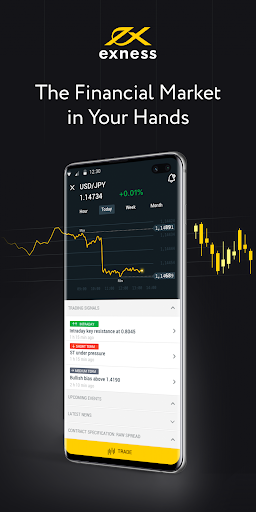
When it comes to trading in the forex market, one of the most critical aspects to consider is the spread. Understanding the exness forex spreads Exness broker forex spreads can significantly affect your profitability and trading decisions. In this article, we will discuss what forex spreads are, the various types of spreads offered by Exness, and how they can influence your trading strategy.
What Are Forex Spreads?
The forex spread is the difference between the buying price (ask) and the selling price (bid) of a currency pair. It represents the cost of trading, essentially acting as a fee charged by brokers for providing liquidity in the forex market. In a sense, the spread is one of the primary ways through which forex brokers, including Exness, generate revenue.
The Importance of Spreads
Understanding spreads is crucial for any trader, as they directly impact trading costs. A lower spread can lead to more favorable conditions for profit-taking, while a higher spread can diminish returns. Consequently, analyzing the spreads offered by a broker can help traders optimize their trading strategies and manage their expenses efficiently.
Types of Spreads Offered by Exness
Exness offers various types of spreads to cater to different trading styles and preferences. The two main categories are fixed spreads and variable spreads.
1. Fixed Spreads
Fixed spreads remain constant, regardless of market conditions. They remain the same during both high and low volatility periods. This feature is advantageous for traders who prefer predictability, as it allows them to plan their trades with clear cost expectations. However, fixed spreads may be set higher than variable spreads offered during stable market conditions.
2. Variable Spreads
Variable spreads fluctuate based on market conditions, often narrowing during periods of low volatility and widening during times of high market disruption. For example, during major economic releases or geopolitical events, variable spreads can increase as market liquidity dwindles. Variable spreads can be beneficial for traders who can capitalize on tight spreads in calm markets but may incur higher costs during turbulent times.
Factors Influencing Exness Forex Spreads

Several factors affect the spreads offered by Exness. Understanding these factors can help traders anticipate potential changes in trading costs.
1. Market Liquidity
Liquidity refers to the ease of buying and selling assets in the market without causing significant price changes. During periods of high liquidity, spreads tend to narrow, as there are more buyers and sellers in the market. Conversely, low liquidity can lead to wider spreads, making it more expensive to enter or exit trades.
2. Market Volatility
Market volatility is a critical factor that influences spreads. Events such as economic announcements, geopolitical tensions, and natural disasters can cause rapid price movements. During such times, spreads may widen significantly due to increased uncertainty and lower liquidity.
3. Trading Hours
The forex market operates 24 hours a day, five days a week, but not all hours are created equal. Spreads can vary significantly depending on the time of day. Major trading sessions, such as the London and New York sessions, typically exhibit tighter spreads due to higher trading volumes.
How to Choose a Broker Based on Spreads
When selecting a forex broker, it is crucial to evaluate their spreads. Here are some tips for choosing a broker based on spread offerings:
1. Compare Spreads
It’s beneficial to compare the spreads across various brokers. Exness, renowned for competitive pricing, offers various spreads depending on the account type. Calculating the total cost of trading, including spreads and commissions, can help traders make informed decisions.
2. Consider Account Types

Different account types often come with varying spread structures. For instance, some accounts may offer lower spreads but charge a commission on trades, while others may have higher spreads but no commissions. Assessing individual trading needs can help determine the best account type.
3. Look for Promotions
Some brokers may offer promotions or bonuses that could effectively lower spreads or reduce trading costs. It is wise to keep an eye out for such incentives when comparing brokers.
Minimizing the Impact of Spreads on Your Trading
While spreads are an unavoidable cost in forex trading, there are strategies traders can employ to minimize their impact:
1. Choose the Right Trading Strategy
Scalping and day trading strategies that rely on quick trades may be significantly impacted by spreads. Consequently, those traders may prefer brokers with lower spreads. Swing traders, on the other hand, may be more tolerant of wider spreads as they focus on larger price moves over longer periods.
2. Trade During Optimal Hours
To minimize trading costs, consider executing trades during times of high market liquidity, typically when major markets overlap. This way, traders can take advantage of tighter spreads.
3. Understand Market News and Events
Being aware of scheduled economic events can help traders avoid initiating trades when spreads are likely to widen. Utilizing an economic calendar can aid in planning trades around these events.
Conclusion
Understanding Exness forex spreads is vital for any forex trader looking to enhance their trading performance. By comprehending how spreads work, the factors influencing them, and strategies for minimizing their impact, traders can make informed decisions that support their financial goals. Ultimately, carefully evaluating spreads and choosing the right broker can lead to a successful trading experience in the dynamic world of forex.
